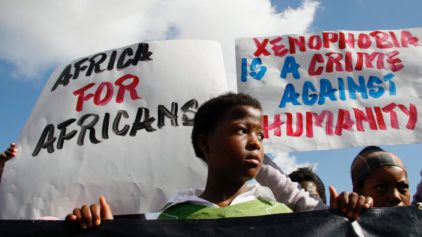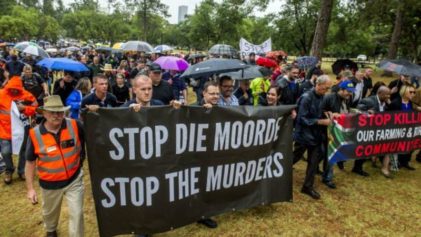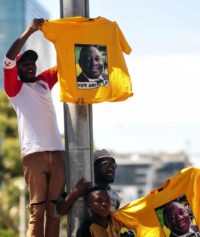South African President Jacob Zuma easily won reelection yesterday to be the leader of the African National Congress at the ANC’s five-day conference in Bloemfontein.
Of the nearly 4,000 votes cast, Zuma received 2983 votes while his challenger, deputy leader Kgalema Motlanthe, received 991 votes.
The results mean that Zuma is virtually certain to be reelected as the nation’s president in 2014, as the leader of the governing party is customarily chosen as president—though it’s not required by law.
With his more laid-back, professorial style and caginess about whether he even wanted the job, Motlanthe was seen by many as an ideal antidote to the brash Zuma at a time when the country is searching for quiet stability. In fact, Motlanthe, 63, was even hesitant to call himself a politician.
“I know it might sound like a lot of ducking and diving and so on,” he said before the vote, adding, “I have a political attitude, but I’m certainly not a politician.”
Even after his reelection, the problems facing Zuma are considerable: Many blacks expected that the end of apartheid would bring them more economic opportunity, yet the majority of them remain overwhelmingly poor two decades after apartheid ended—while the politicians and the elite get richer. But perhaps no period has been rockier for Zuma than the last three months, when a massacre of 34 striking miners by police resulted in months of devastating strikes that shut down the mining industry and led to months of violent unrest that dragged down the nation’s economy, damaging the country’s image with investors and leading to a downgrade by credit ratings agencies. In addition, there are many questions about millions of dollars of government-paid improvements made at Zuma’s private home.
Motlanthe, a former Robben Island prisoner like national hero Nelson Mandela, actually served as president from September 2008 to May 2009 after then-President Thabo Mbeki resigned.
“Once it gets to a point where it becomes a matter of life and death to occupy a position of leadership or not, with an eye on future opportunities, therein lies the danger,” Motlanthe said. “The duty to be of service is lost … With time, you end up with a web of connections and patronage that is challenging.”
RamaphosaAt the vote, the spot as deputy was captured by anti-apartheid era hero Cyril Ramaphosa. While Ramaphosa has been a heroic figure in South Africa for his opposition activities during apartheid and subsequently as the founder of the National Union of Mineworkers, which grew into the leading representative of the workforce for the country’s lucrative mining industry. But Ramaphosa transitioned into an extremely wealthy business leader and investor—which led to controversy recently when it was disclosed that he is on the board of the Lonmin mining company, which means he was directly opposed to his former members during the upheaval over the mining strikes. In addition, Lonmin sought Ramaphosa to help it coordinate a response to the striking miners, which in the eyes of many led to the brutal Marikana massacre in August that killed 34 striking miners when they were fired on by police.
After losing the leadership position to Zuma, Motlanthe on Monday said he would not stand again to be deputy leader—but it is seen as likely he will be offered a senior position by Zuma.
“It is likely that Zuma will offer Motlanthe something in order for the party to remain united,” said Al Jazeera’s Haru Mutasa.
Meanwhile, South African authorities released the names of the four white South Africans charged with treason over a suspected plot to bomb the conference and execute Zuma and other top government officials. They are Mark Trollip, John Martin Keevy, Johan Hendrick Prinsloo and Hein Boonzaaier, who all were brought into court in Bloemfontein early Tuesday.
State prosecutor Shaun Abrahams told the court that the men wanted to establish an independent Boer nation and that they were planning an assault on the ANC mass meeting, including a mortar bomb attack on marquees housing ANC delegates, an assault on Zuma and cabinet ministers as they had dinner.
He added that Zuma and others were to be shot “in execution style.” with AK-47 assault rifles they were trying to buy.
The plan was “directly aimed at eliminating the leadership of this country,” Abrahams said.


